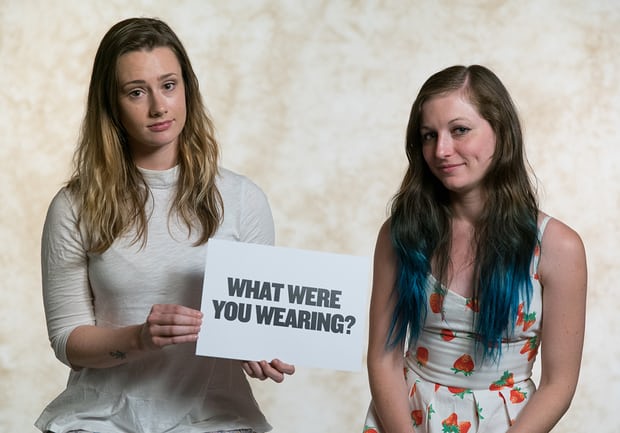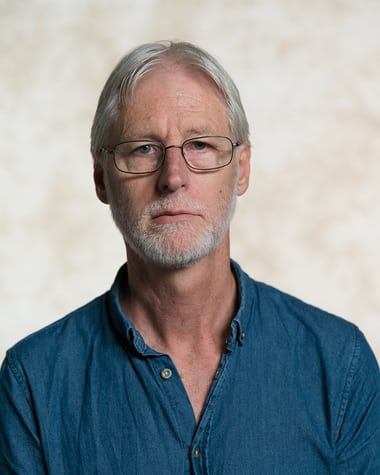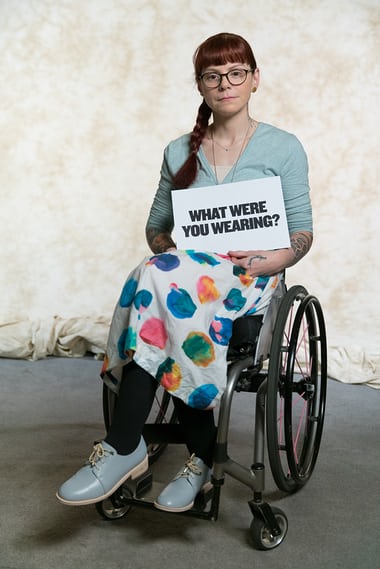Why Is You Can’t Ask That One of the Most Successful Shows on the Abc?
By Luke Buckmaster
Is You Can’t Ask That the most diverse television program in Australian history? The show – directed and produced by Kirk Docker and Aaron Smith – is built on a simple but empowering premise: to give misunderstood and marginalised people the opportunity to speak for themselves, by responding to a range of blunt questions they read out from printed cards. The third season, which premieres Wednesday night on ABC TV and will be available to binge watch on ABC iView, kicks off with an episode Smith recently described as “one of the most impactful, relevant and empowering episodes we’ve ever made”. Focusing on survivors of sexual assault, it begins with an interviewee, Nicole, reading aloud the following question: “How did you get yourself into that situation?” This is a quintessential You Can’t Ask That moment. An inappropriate and outrageously misinformed question becomes an opportunity to address prejudice and counter misinformation. Nicole’s answer begins, “I was married and I was in my own home, in my own bed. That’s how I got myself into that situation.” There is a tragic background to this season of You Can’t Ask That, which underscores the seriousness of the issues often touched upon in the series. One of the key contributors to this first episode, Stuart Kidd, took his own life in May. In a statement, Smith said: “Stuart’s contribution to You Can’t Ask That will have a lasting and profound impact on the audience, helping to reduce stigma and increase awareness and understanding for survivors of sexual assault. We share our heartfelt condolences with Stuart’s family and friends.” Kidd had watched the episode (which was filmed in November 2017) and emailed producers to thank them for sharing his story, describing it as “brilliant.” The subjects are uniformly generous to the audience – they respond candidly and passionately, no matter the question asked. Groups explored in season three include former cult members (“How could you be stupid enough to end up in a cult?”), swingers (“How did you talk your partner into this?”) and people with eating disorders (“You look fine, what’s wrong with you?”). Docker tells Guardian Australia: “We don’t warm them up with anything. We go for the jugular straight away. The poor buggers, sometimes they come in and then, we’re on!” The trick to making a compassionate program that incorporates incongruous elements is, the film-maker says, simple: “It’s giving a shit. The trick is actually caring. I’ve run some interviewing workshops and I always say that in that moment I am in love with these people. There’s no one more important to us in that moment. Our focus is 100% on these people and nothing else.” The importance of tight, robust editing is amplified by a format in which there is nowhere to cut away to: no other locations, not even the the interviewers (Docker and Smith) make an appearance.
“It’s always a very involved edit,” Smith says. “Because it’s just talking, everything is really considered. There’s a lot of debate that goes on behind the scenes in terms of what makes it and what doesn’t. “There are also other elements like the music track, composed specifically for every question. It’s something the audience may not notice on a conscious level but it’s certainly playing to their minds. And it’s super important because it helps drive the narrative.” Audiences have responded enthusiastically to You Can’t Ask That’s pared-back format, particularly online, where the show became the most played non-children’s program on iView last year. It is also, with its minimal technical requirements and low costs, an appealing prospect for producers. According to the ABC, it has six international versions so far with options signed for an additional 10 territories worldwide. The no-frills approach also allows the directors to take their show on the road. Unbeknownst to audiences, episodes have been filmed in a variety of places, including town halls, offices and hotel rooms. “Wherever we can block out the light, we can shoot the show,” says Docker, the simplicity of the set allowing the film-makers to “pack it down to 10 bags and jump on a plane”. More important, though, is the sense of intimacy the set provides: “By having that simple space – the focus being on the participant, not on where they’re from or what’s around them – you can’t judge them on anything but what they’re saying,” Docker continues. Adds Smith: “It’s pretty great when you can sit in front of someone and ask them the 10 most full-on questions you can imagine. It’s a great privilege. Not many people get to do that. Sometimes you wish you could do that at a dinner party, or when you bump into people on the street.
“If you do it with care, and you do it with love, people will tell you about their lives. Because we’ve done this a few times now, they know they can trust their story with us. We then want to return the favour and edit the show in a way that makes them all heroes.”
|
.
Any original material on these pages is copyright © BishopAccountability.org 2004. Reproduce freely with attribution.


